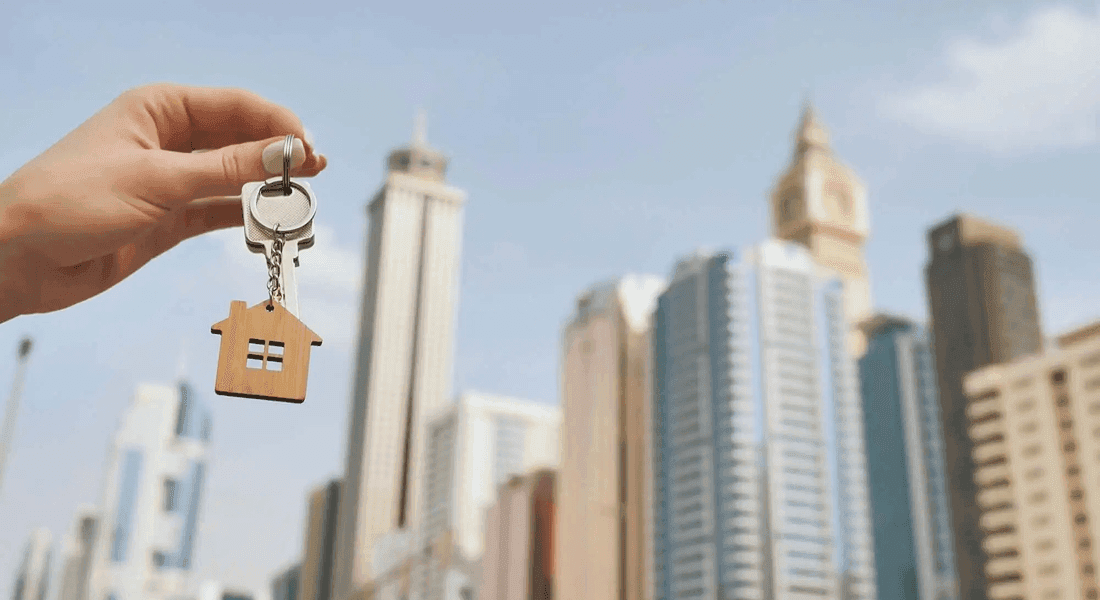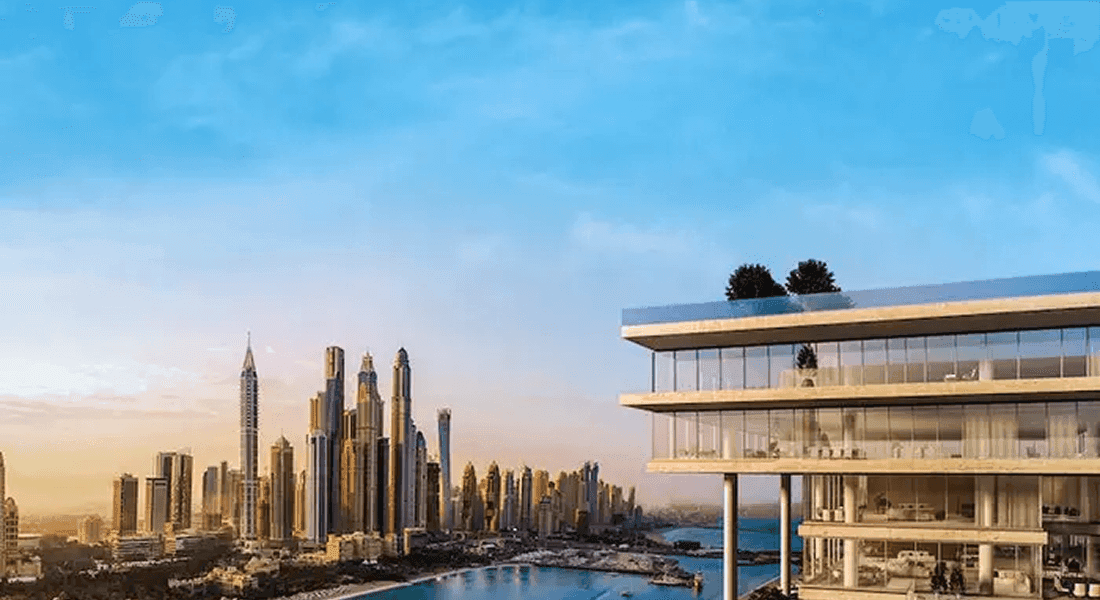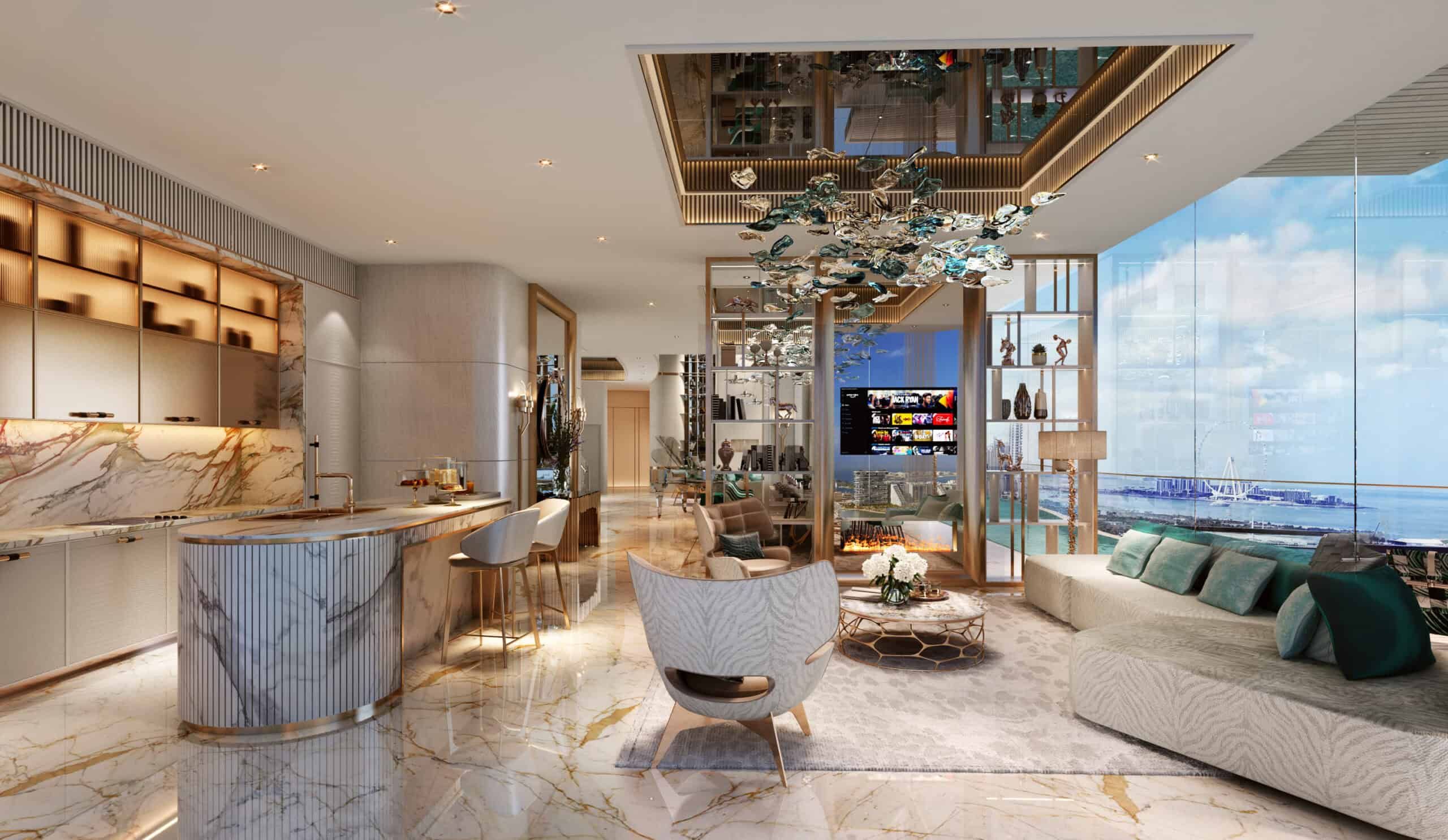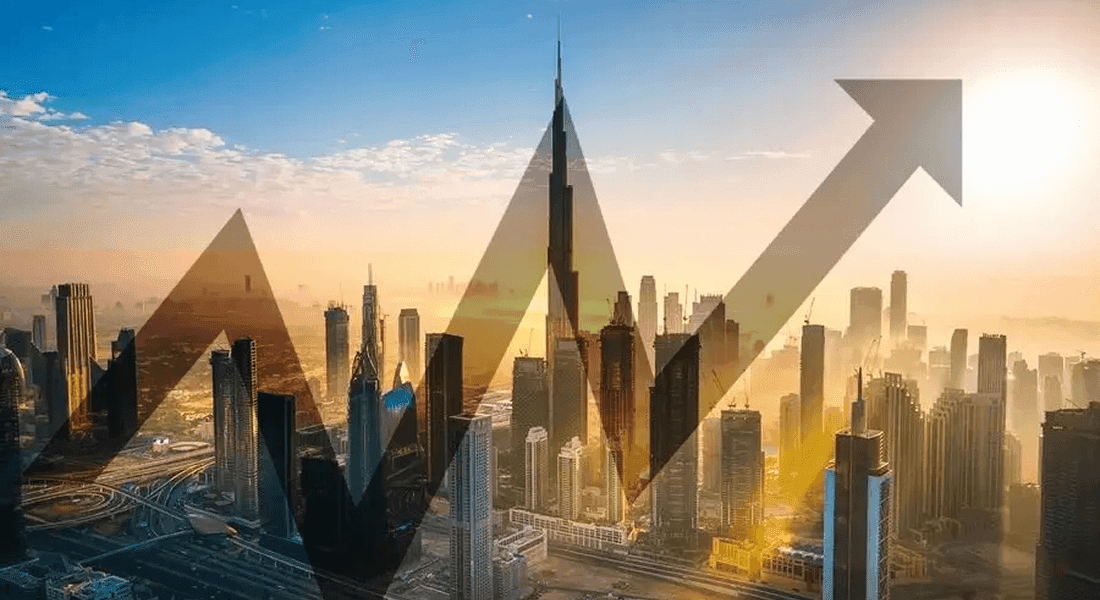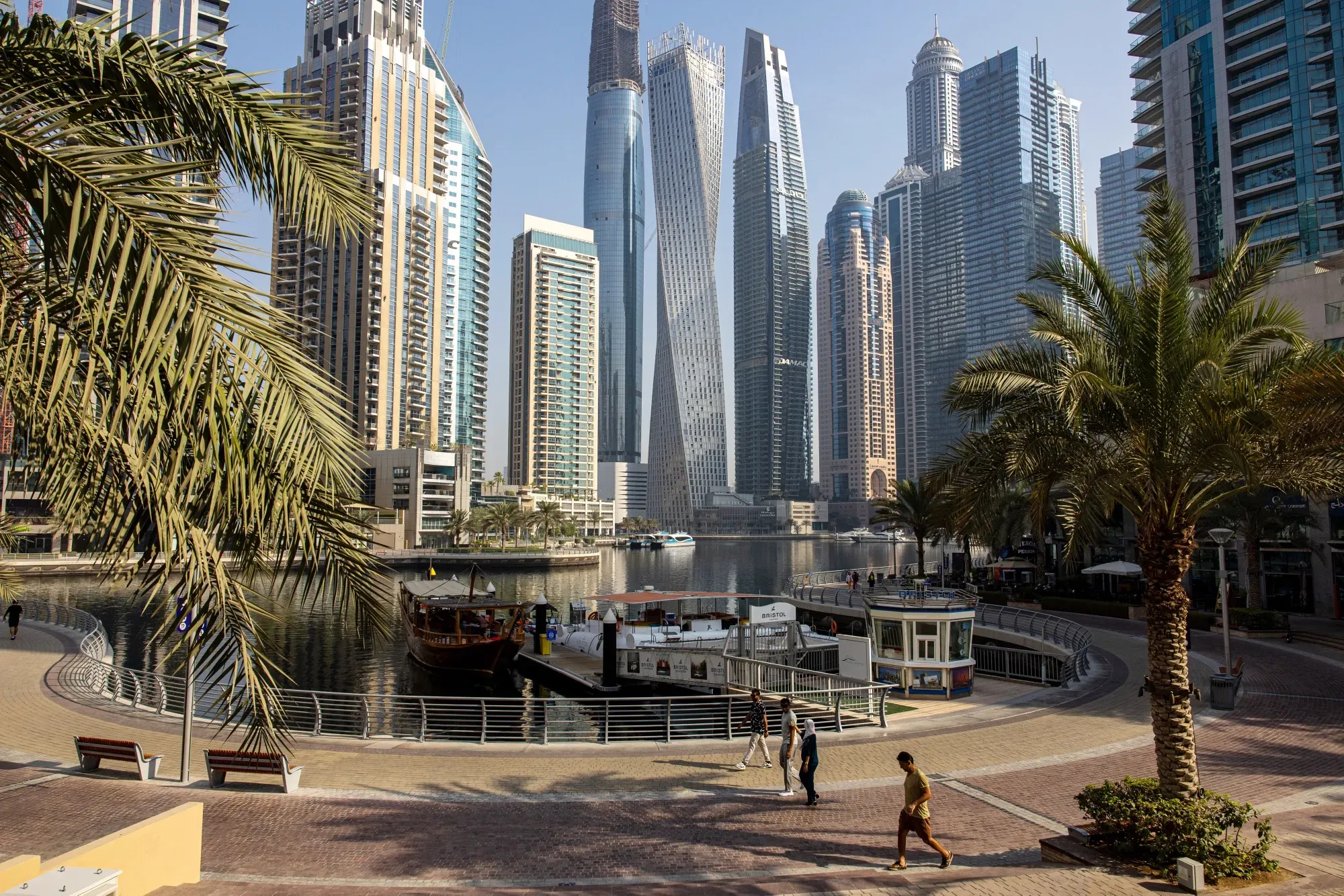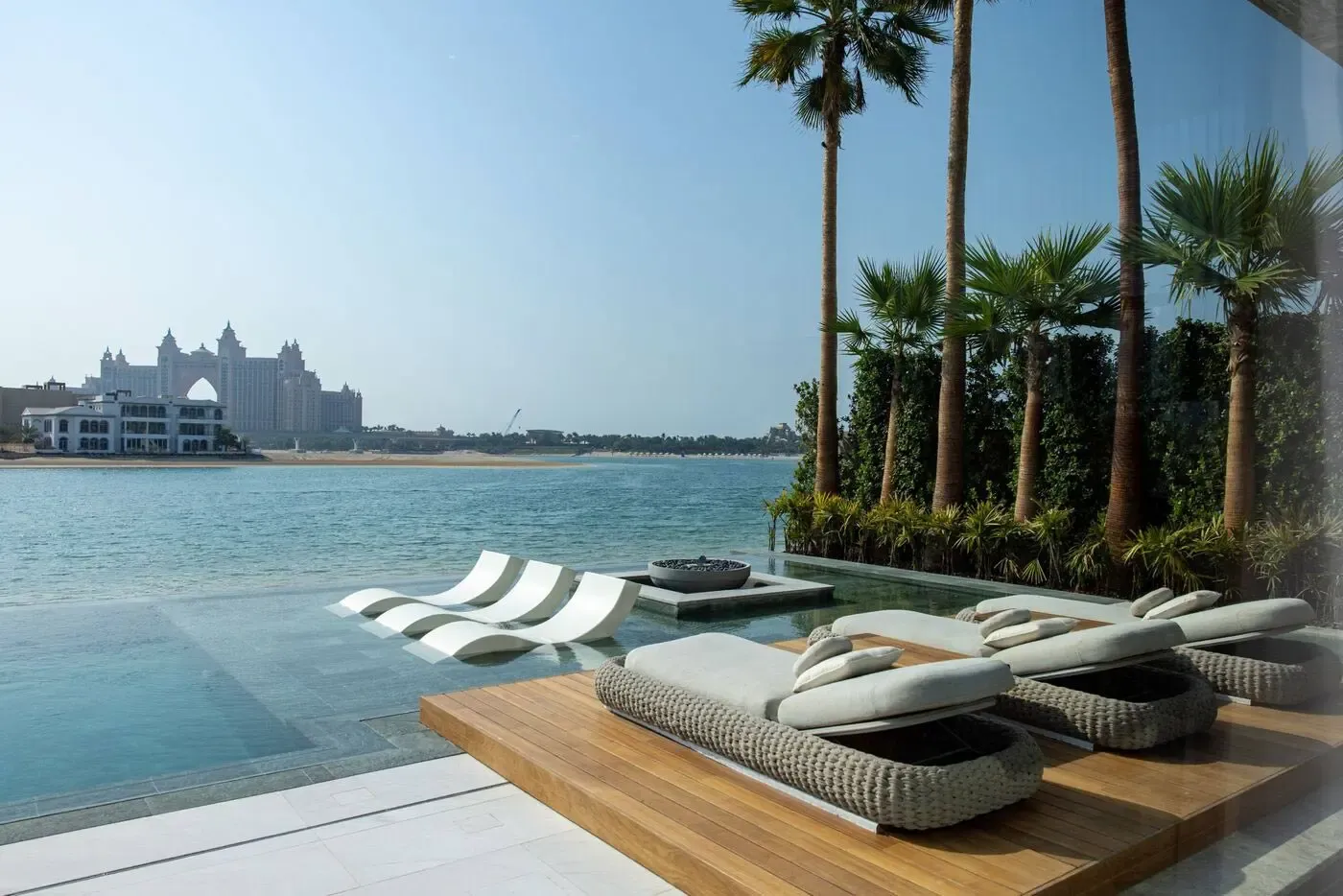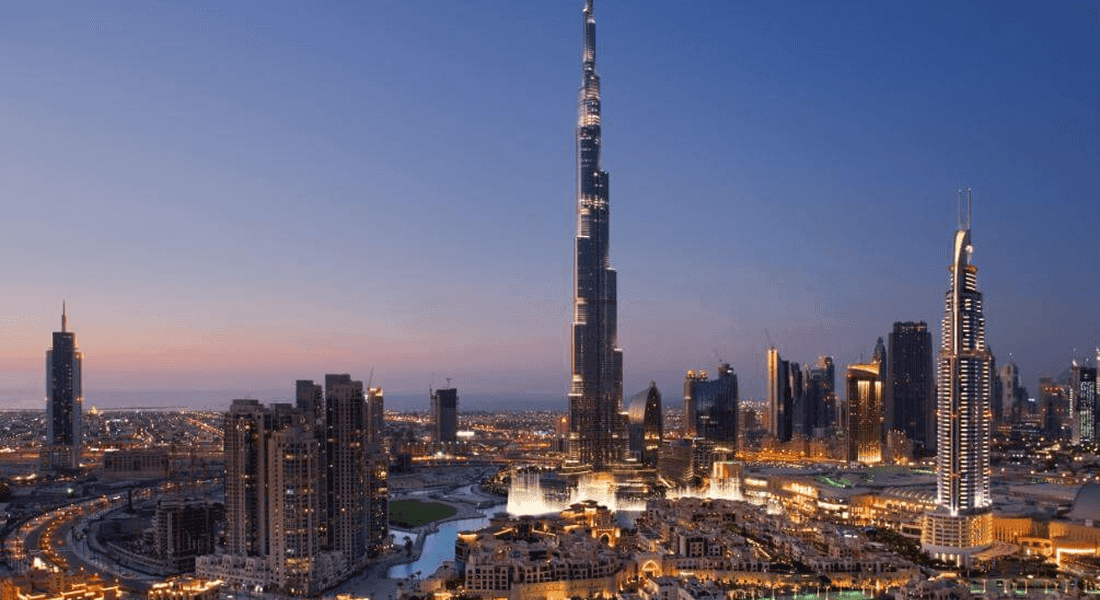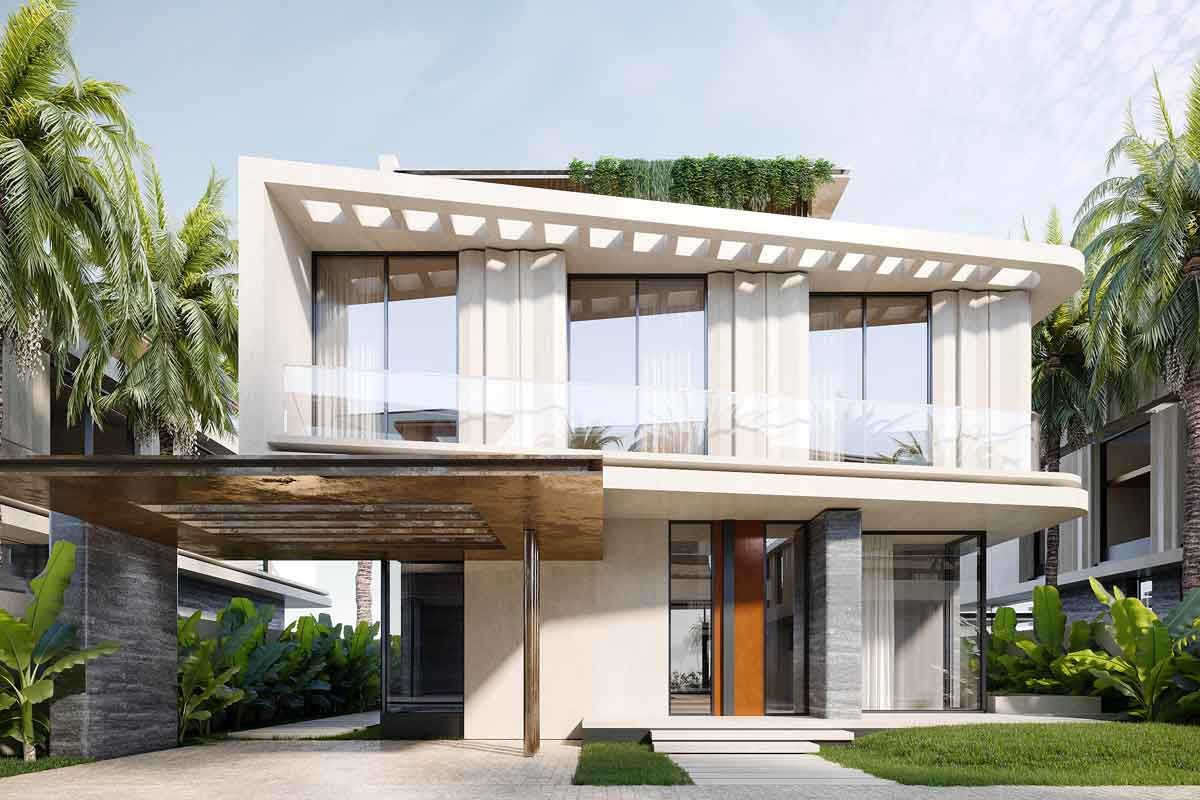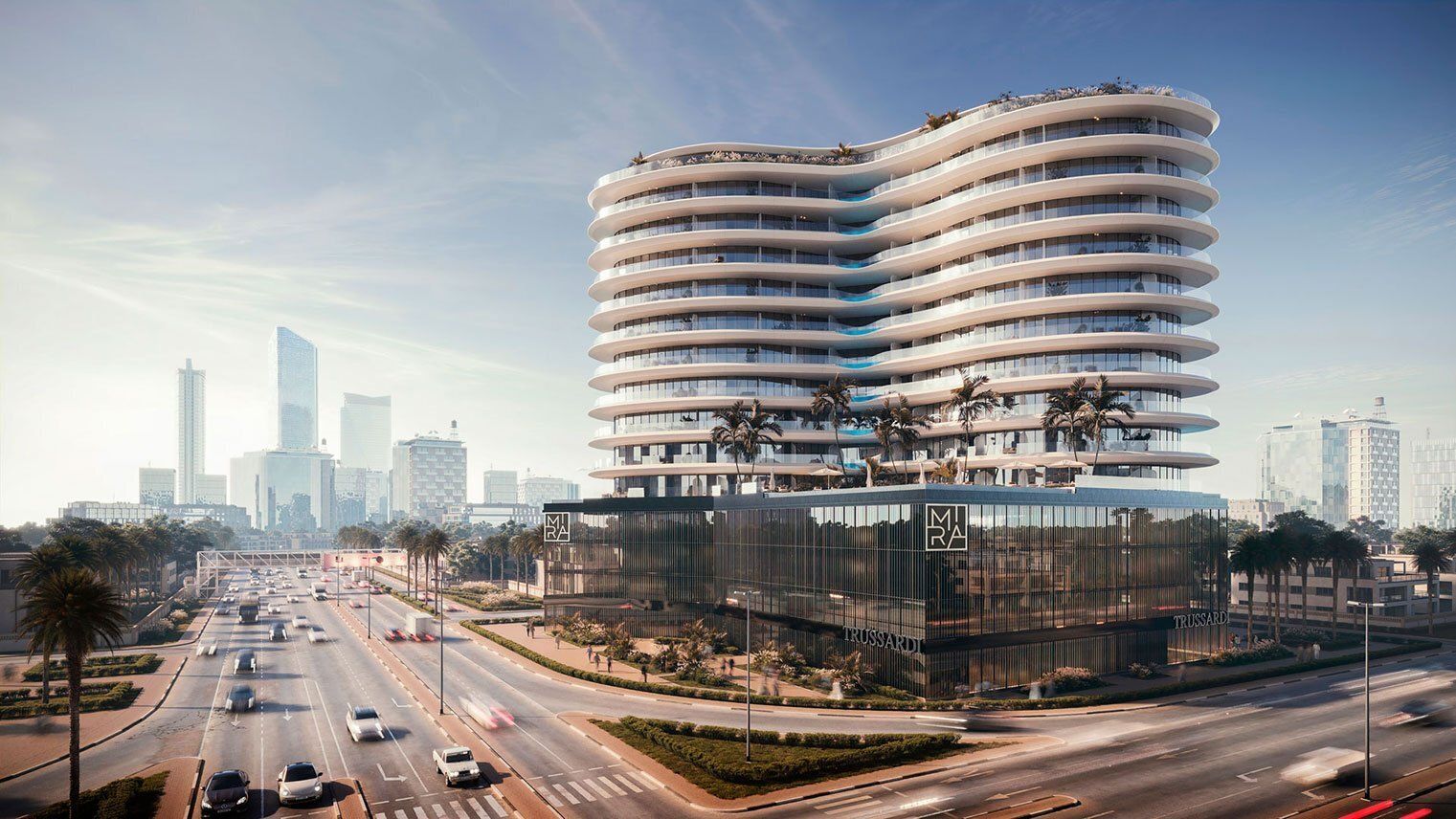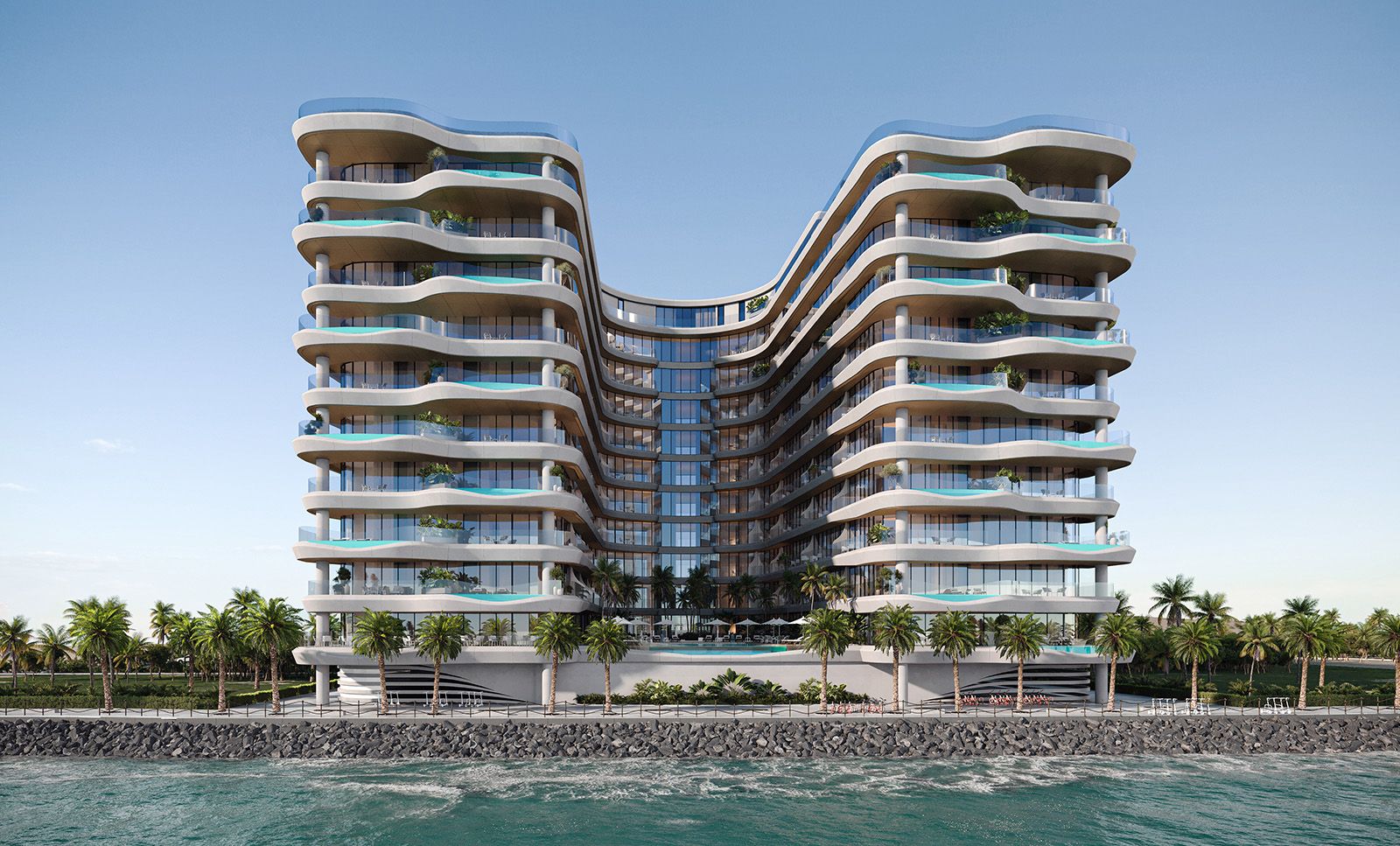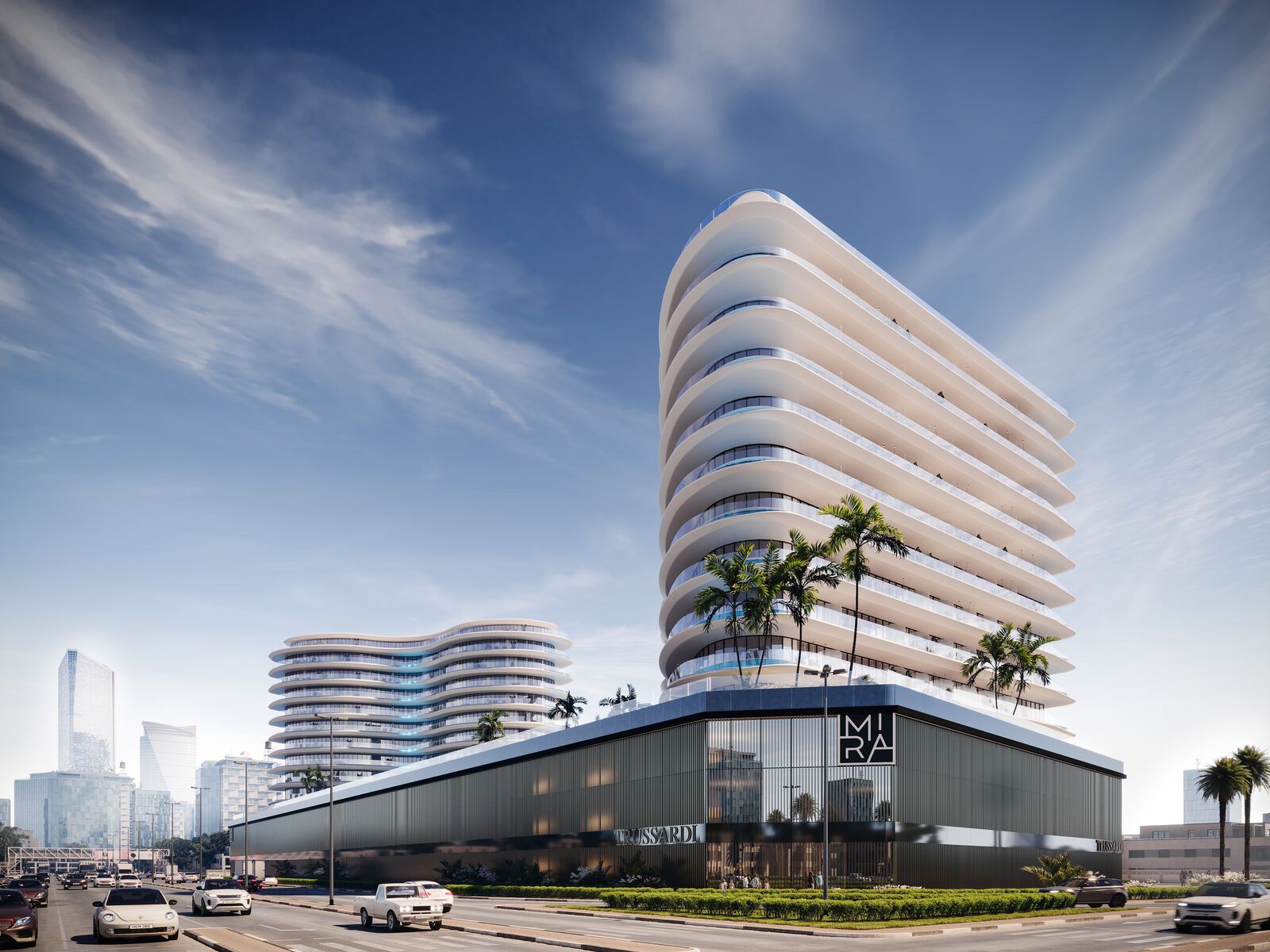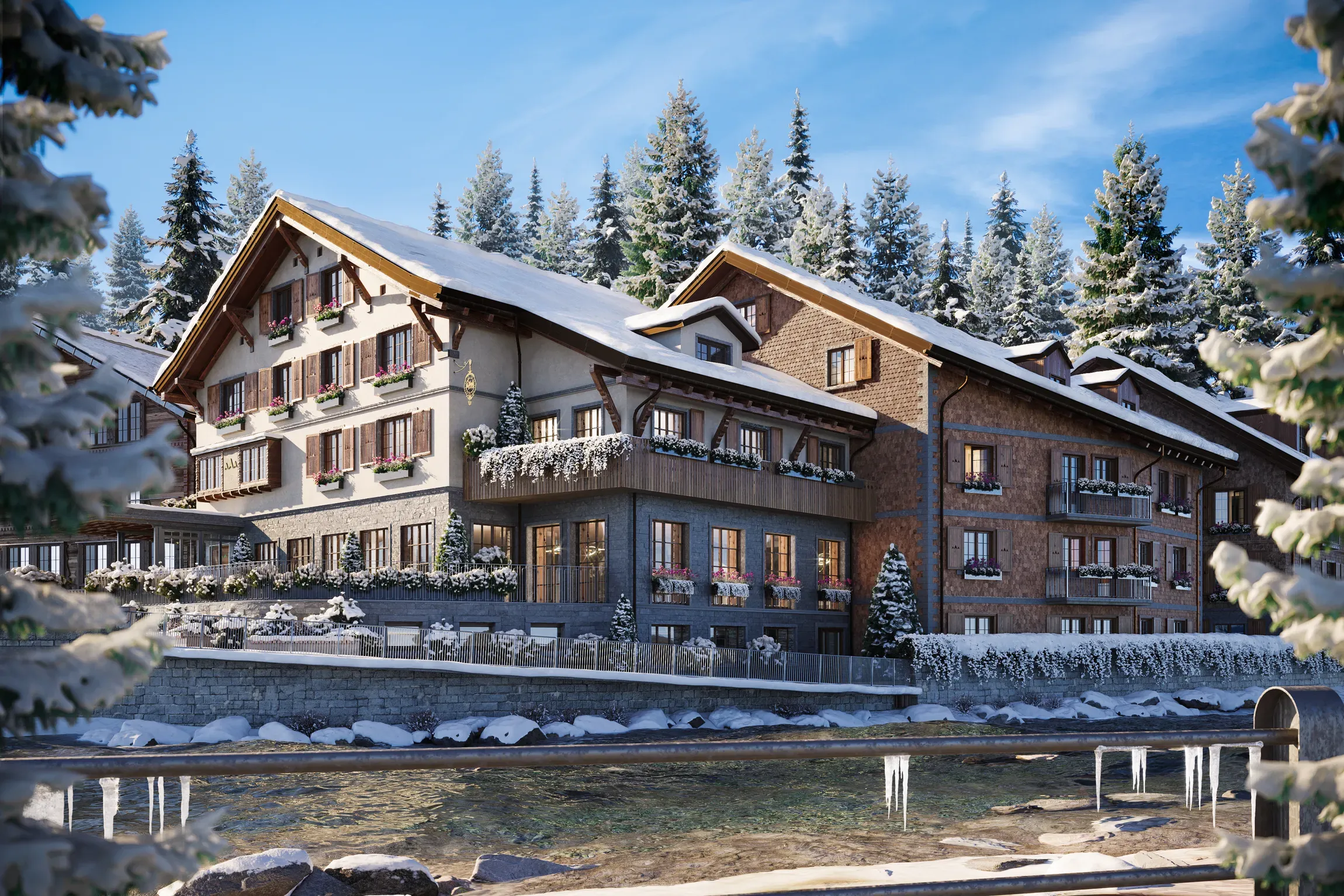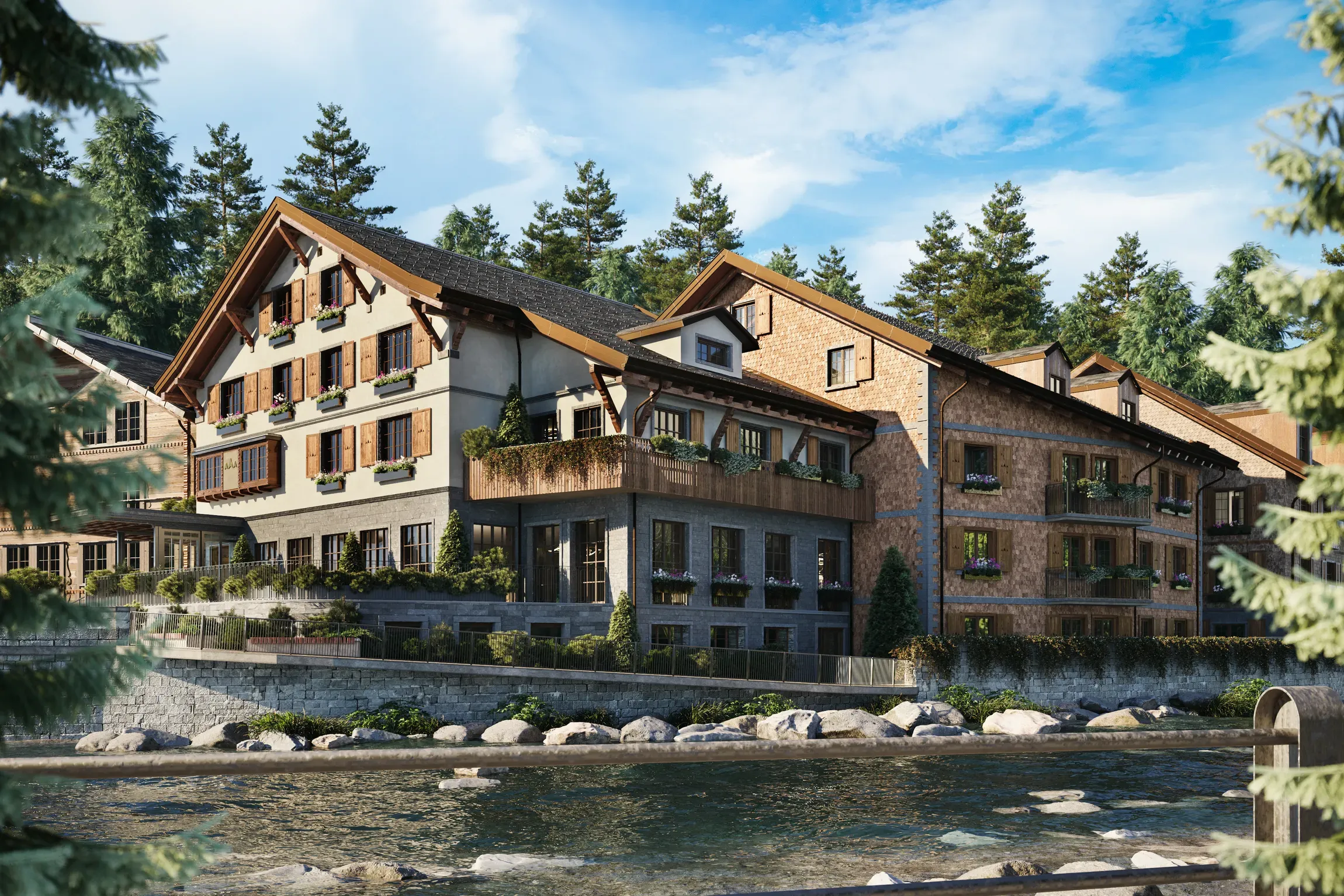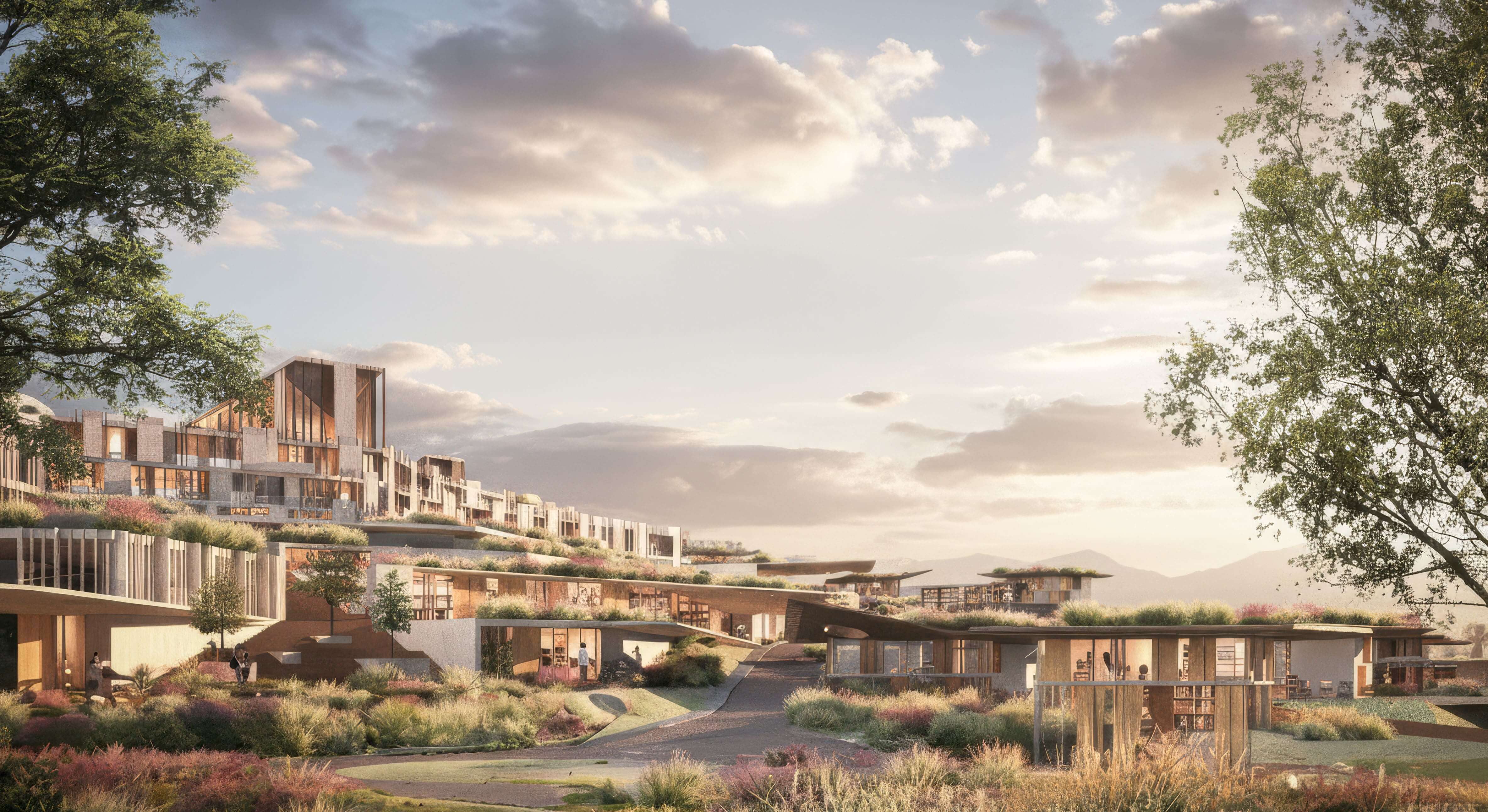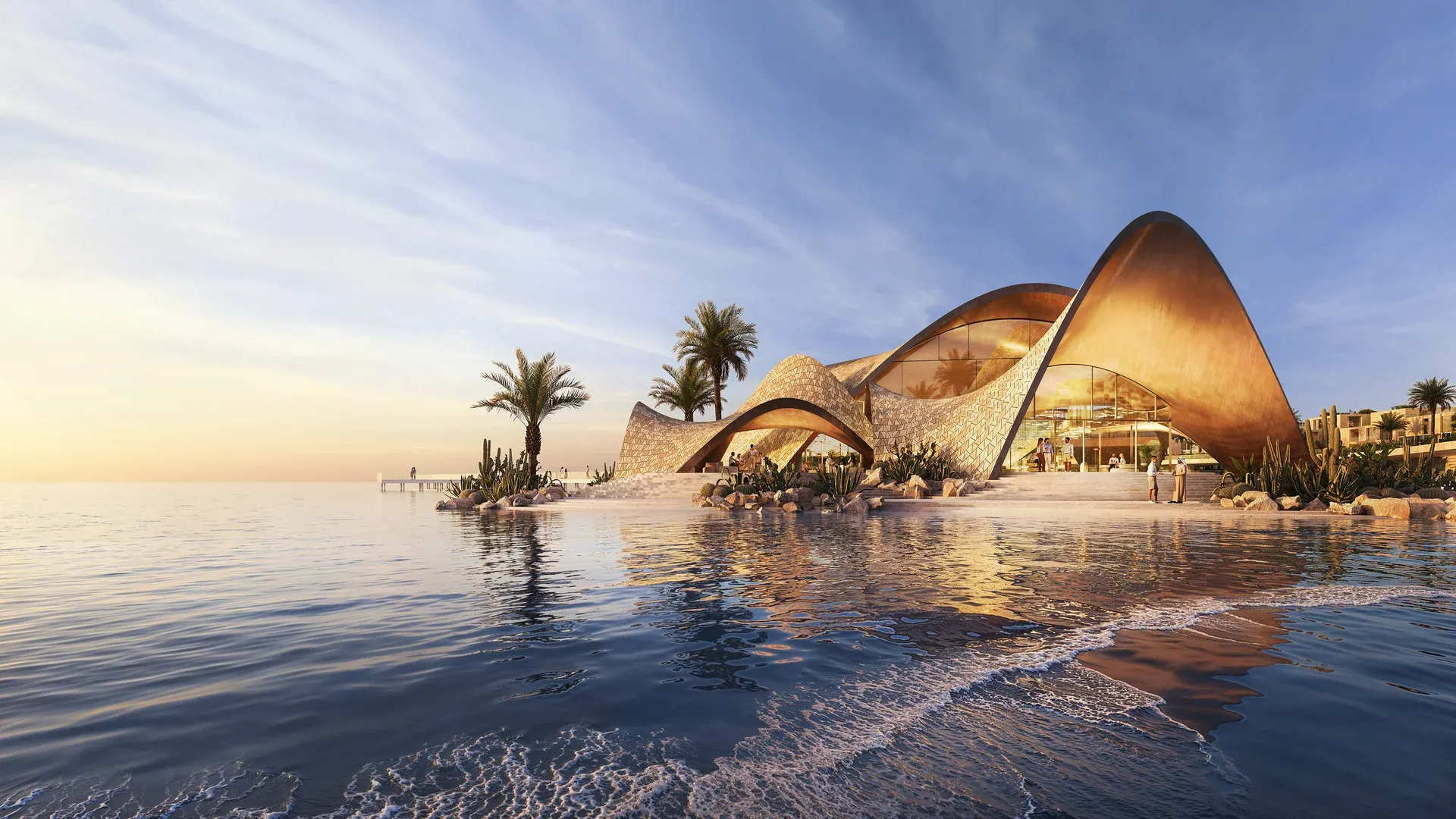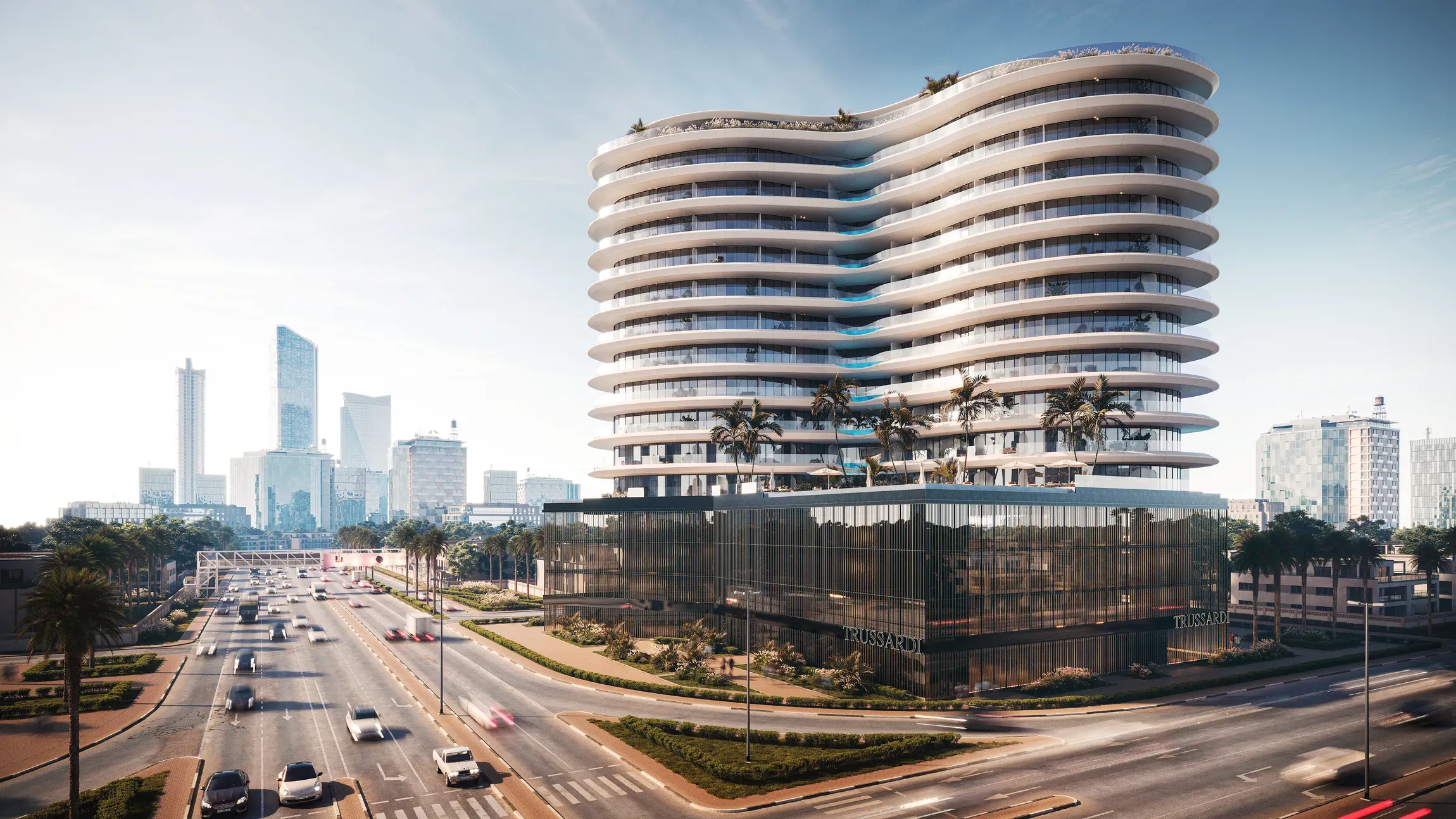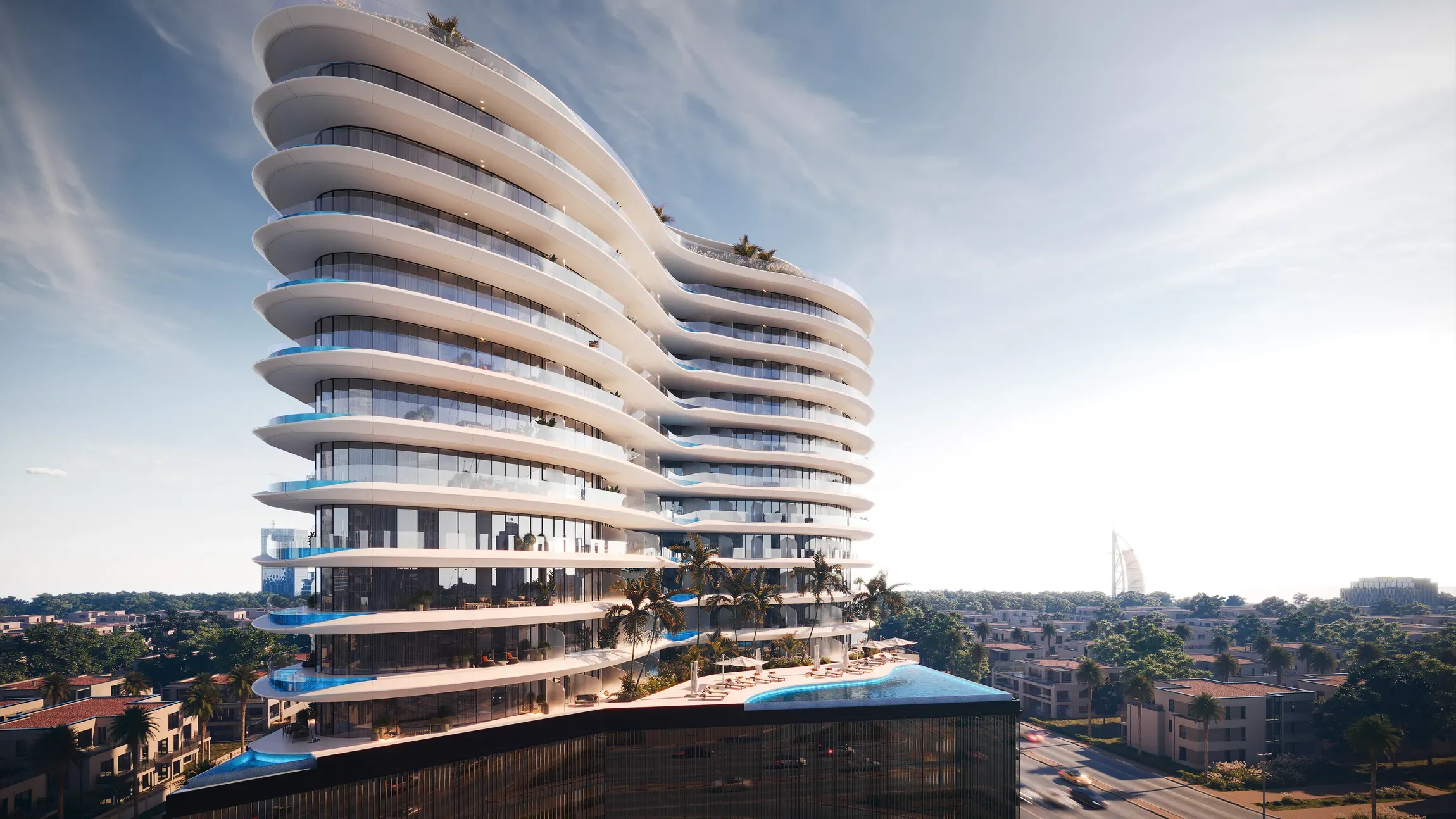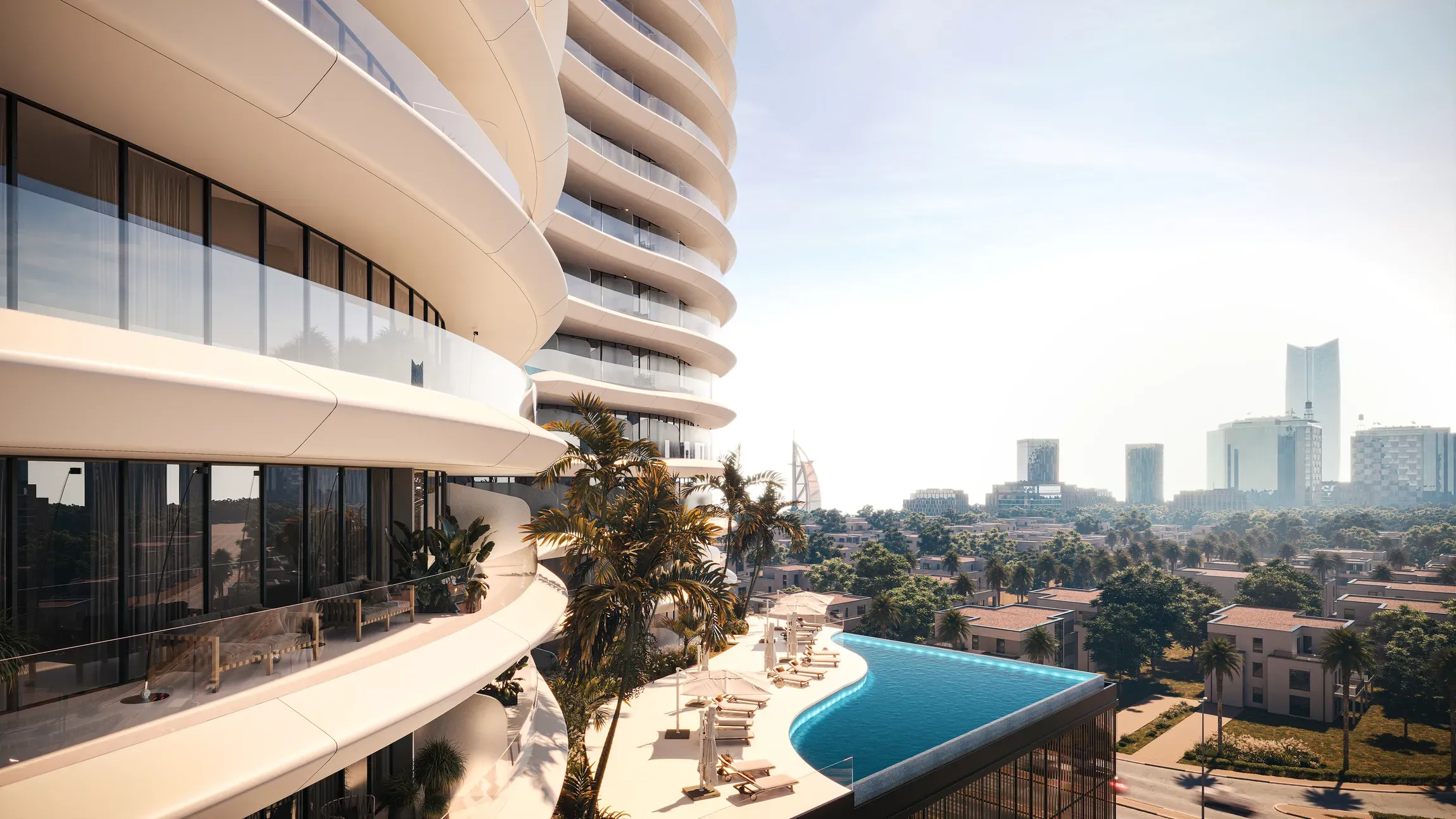14.02.2025
Investing in Dubai real estate: Benefits and challenges of UAE real estate investment
Both seasoned real estate investors and newcomers must weigh many factors when making investment decisions. While there is no universal yardstick to measure risks and benefits, one region stands out as a sure bet among the many investment options available.
The real estate sector in Dubai is set to grow in the foreseeable future driving the influx of capital for years to come. Call it a safe real estate investor haven, investing in Dubai real estate ticks all the boxes as it provides a strong long-term return on investment in a unique regulatory environment that welcomes and protects capital.
Strategic government reforms and economic diversity further contribute to the emirate’s favorable investment climate. According to forecasts from the Central Bank of the UAE, the economy is expected to grow by a healthy 6.2% in 2025 and beyond. Combined with limited supply and the continued appeal of both luxury living and more affordable accommodations, Dubai’s property market is set to remain strong.
However, there are pros and cons associated with investing in Dubai real estate that we will try to highlight here.
Benefits of Investing in Dubai Real Estate
Tax-Free Investment Environment
Dubai’s real estate market is unique in offering a truly tax‑free environment. There are no annual property taxes, no taxes on rental income, and no capital gains tax on sales — so investors keep every dirham of their returns. The regulatory framework also features zero withholding taxes on dividends, interest, or royalties, ensuring maximum net yields for both residents and non‑residents.
Beyond these advantages, individual real estate income is generally excluded from corporate tax (absent a commercial licence), and investors enjoy 100 % repatriation of capital and profits, backed by the UAE’s network of double‑tax treaties.
Together, these benefits make Dubai one of the world’s most attractive destinations for property investment, delivering streamlined ownership and exceptional growth potential without traditional tax burdens.
High Growth and Strong Yields
CBRE reports that Dubai’s property values jumped 20% year‑on‑year in Q3 2024, ranking it among the fastest‑growing markets globally. Off‑plan developments bolster returns further, often appreciating 10–30% between purchase and handover — highlighting significant upside for resale investors.
On the rental side, Dubai delivers average gross yields of 6–7%, surpassing Paris (3–4%) and New York (around 4%) thanks to steady tenant demand.
Yield performance is often strongest in smaller units: villa rentals peak at around 7% yield, while studios and one‑bedroom apartments can reach up to 12%, driven by high demand for affordable homes from young professionals and expatriates.
Strategic Location and Global Connectivity
Historically, ancient cities such as Alexandria, Venice, Constantinople, and Carthage, strategically located at the crossroads of world trade routes, thrived by leveraging their location and becoming the hubs of prosperity and innovation. Dubai is the modern-day hub that connects Europe, Asia, and Africa.
The emirate’s status as the world’s strategic hub is hard-earned through the prudent allocation of capital Dubai amassed over the years of oil-driven prosperity.
Dubai reinvested its oil‑driven wealth into landmark projects — such as Dubai Creek Harbour and Meydan City — turning the emirate into a global investment magnet. Major infrastructure upgrades, including the Dubai Metro extension and the new Dubai Al Maktoum International Airport, have woven the city together with seamless road, rail, and air links.
Properties near these transport arteries now command exceptional demand. Easy access to key hubs not only enhances everyday convenience but also delivers some of the highest rental yields in Dubai’s market.
Government Support and Golden Visa
Dubai’s government encourages real estate investment through its residency visa programs. Investors who purchase property worth at least AED 750,000 (approx. $204,000) are eligible for a 2‑year renewable residence visa, which also covers their immediate family.
For property investments of AED 2 million or more, buyers can apply for the prestigious 10‑year Golden Visa, offering long-term residency and the ability to sponsor their spouse, children, parents, and domestic workers.
These visas grant unlimited entry, free access to the UAE’s healthcare and education systems, and can be renewed as long as the property investment is maintained.
Steady Population Growth and Market Demand
Dubai’s population has surged from 1.8 million in 2010 to 3.8 million in 2024. By 2040, it is projected to climb to 5.8 million, driven mainly by incoming expatriates.
Over the past decade, the expat population has steadily increased, now accounting for 85% of Dubai’s total residents. This expanding community continues to fuel strong demand across the emirate’s real estate market.
Sustainable Appeal
Eco‑friendly design is becoming a key draw in Dubai’s property market. New developments feature lush green spaces, rooftop gardens, and energy‑efficient systems. Smart home technologies — like automated lighting and climate controls — appeal to environmentally conscious buyers.
These green features not only reduce running costs but also preserve long‑term property value. Investors looking for resilience and responsibility are increasingly turning to sustainable Dubai real estate.
Freehold Ownership in Dubai
Dubai offers tailored freehold options for all investors. Foreigners can own property and land outright in designated zones. Villa freeholds include Arabian Ranches, Jumeirah Park, and Emirates Hills, while apartments in Dubai Studio City, Arjan, and Discovery Gardens are also freehold.
Areas like Al Furjan, Motor City, and Dubai South offer both types. Freehold ownership means permanent control — you can sell, lease, modify, or bequeath without time limits or third‑party approvals.
Potential Drawbacks of Dubai Real Estate Investment
However, you can’t have the rainbow without the rain. There are certain challenges in Dubai property investments that investors have to face.
Market Volatility
The emirate's property values are sensitive to shifts in currency changes, geopolitical tensions, and energy prices. These factors can affect the ROI in the short run, creating uncertainty for property owners and potential buyers.
In the long run, the Dubai government has been working hard to cushion these fluctuations. The long-term visa programs, relaxed property laws, and tax incentives contribute to investor confidence and help keep a steady influx of capital into the market, offsetting potential dips caused by externalities.
On top of that, the government’s wise focus on economic diversification — reducing dependency on oil revenues — has created a resilient real estate sector.
Regulatory and Legal Complexities
Investing in Dubai’s real estate requires a thorough understanding of local laws, compliance requirements, and associated fees.
Getting to know property ownership regulations, such as understanding the distinction between freehold versus leasehold rights, is critical. Seeking professional guidance from legal and real estate experts who can provide clarity and give sound real estate financials is highly advisable.
High Transaction Costs
Real estate transactions in Dubai come with significant costs that can eat into your returns. The 4% DLD registration fee, agency commissions, and ongoing maintenance charges can really add up. Investors should anticipate these expenses and work them into their overall investment strategy.
Limited Liquidity of Real Estate
Unlike stocks or bonds, real estate is a relatively less marketable asset. Investors seeking quick returns need to keep that in mind. A longer-term investment strategy and a focus on properties in high-demand areas can help mitigate this and ensure steady appreciation over time.
Top Communities for Investment in Dubai
Downtown Dubai — the emirate’s crown jewel, the epitome of luxurious vertical living, offering both high-end rentals and upscale quarters — penthouses and hotel apartments — for sale.
Arabian Ranches — contrasting with Downtown, this is a suburban family haven with freehold two- to six-bedroom villas and townhouses, complete with amenities like schools, sport centers, and lush parks.
Dubai Hills Estate — a tranquil suburban retreat built around an 18‑hole championship golf course and expansive parkland. Elegant villas and townhouses sit along green boulevards and near a central shopping avenue, ideal for those who value both luxury and outdoor living.
Dubai Marina — a vibrant waterfront neighbourhood where high‑rise apartments overlook yacht‑filled channels. Its bustling promenade offers world‑class dining, leisure, and a decidedly cosmopolitan, seaside lifestyle.
Meydan City — the gold standard of sustainable living, luxury real estate, and access to world-class entertainment and sporting events. Strategically located and packing exceptional amenities, Meydan offers unmatched investment opportunities.
Why Dubai’s Real Estate Market is a Solid Bet
Dubai's real estate market has consistently demonstrated strong growth, with property prices showing a significant year-on-year increase of 20.71% in the first quarter of 2024. This trend testifies to the market's resilience and its unmatched capacity to rebound from global economic challenges, including the long-term impacts of COVID-19.
The emirate's strategic initiatives, such as the Dubai Economic Agenda D33, further enhance its status as a global investment hub, attracting capital from regions like Russia, China, and India.
Dubai's commitment to sustainable development coupled with architectural uniqueness appeals to a broad spectrum of eco-friendly and tech-savvy investors and residents of all demographics.
Short-Term vs. Long-Term Investments
Choosing the Right Investment Strategy
Real estate strategies generally split into two camps: short‑term flips and long‑term rentals. Short‑term flips focus on buying properties — often off‑plan — and selling them quickly for immediate profit. Long‑term rentals aim to generate steady income from tenants and benefit from capital appreciation when you sell years down the line.
Each approach carries its own rewards and risks. Flipping can deliver fast returns but depends heavily on market timing. Rental investments provide reliable cash flow but require ongoing management and patience for growth.
Your decision should align with your financial goals and risk tolerance — whether you’re drawn to the quick payoff or the steady income, understanding the pros and cons will steer you toward the smartest choice.
Short-Term Flip
- Pros: Offers quick profit potential with fast turnover.
- Cons: High risk involved due to market volatility, which can impact returns.
Long-Term Rental Income
- Pros: Provides steady cash flow and benefits from property appreciation over time.
- Cons: Requires ongoing management and maintenance efforts, which can add to costs and responsibilities.
How to Start Investing in Dubai Real Estate
Choose the Right Ownership
Decide between Freehold (100 % title ownership) and Leasehold (up to 99‑year lease). Freehold zones let expats hold full ownership, while leasehold grants long‑term usage rights.
Account for All Costs
Budget for ancillary expenses such as service charges, registration fees, and maintenance costs, which can seriously affect your investment returns.
Define Your Strategy
Are you seeking quick gains or steady income? A short‑term flip (buy off‑plan, sell on handover) can yield fast profits but carries market risk. A long‑term rental offers predictable cash flow but requires ongoing management.
Target Prime Areas
Location drives value and demand. Focus on established hotspots — Downtown Dubai, Dubai Marina, Business Bay, and Meydan City — where both rental and resale markets are strongest.
Check the Developer’s Track Record
Choose projects from trusted developers with proven delivery records. Review their past completions, quality standards, and contract transparency before you commit.
Consider relying on professionals to navigate Dubai's dynamic real estate market effectively. Mira Developments offers personalized guidance to help you make informed and bespoke investment decisions.
Why Mira Developments is the Right Choice for Investors
Mira Developments stands out among Dubai's real estate peers by prioritizing customer satisfaction and focusing on delivering the highest ROI for its clients. This is achieved through unique collaborations with prestigious global brands such as Bentley Home and Trussardi.
Exclusive properties like Mira Villas designed by Bentley Home and Trussardi Residences, which blend luxury with innovative design, are the products of these creative alliances.
Mira Developments is known for its transparency and client-first ethics. Investors stay well-informed at every stage and get post-handover support. Mira Developments supports sustainability and innovation, integrating eco-friendly practices and cutting-edge technology into their developments.
Mira Developments is known for its transparency and client-first ethics. Investors stay well-informed at every stage and get post-handover support, giving them peace of mind. In line with the evolving demands of modern investors and residents, Mira Developments supports sustainability and innovation, integrating eco-friendly practices and cutting-edge technology into their developments.
Frequently Asked Questions
Is Dubai real estate a bubble?
Dubai’s real estate market isn’t a bubble; it’s one of the world’s most resilient, underpinned by responsive government policies that swiftly counter external shocks.
How do I get started as an international investor?
To begin investing in Dubai real estate as an international investor, start by identifying your investment goals — whether for rental income, capital appreciation, or both.
What is the Golden Visa, and how does it benefit property investors?
Investing AED 750,000 or more in Dubai real estate qualifies buyers for a 2‑year renewable residency visa, while a property purchase of AED 2 million or more grants eligibility for the 10‑year Golden Visa.
Are there restrictions on foreign ownership in Dubai?
Yes, foreign ownership in Dubai is permitted in designated freehold areas, where expatriates can own property with no strings attached. Outside these areas, properties are typically available under long-term leases of up to 99 years.
How does Dubai’s rental market compare globally?
Dubai averages around 6 % gross rental yield, outperforming cities like London (2–4 %) and New York (3–4 %).
Explore Our Projects
Al Marjan Island, Ras Al Khaimah
Gianfranco Ferré Residences
Step into a new standard of coastal living with stylish studios and spacious one-, two-, and three-bedroom apartments — all featuring fully furnished interiors, hotel-style services, and sweeping views of the Arabian Gulf.
Al Furjan, Discovery Gardens, Dubai
Trussardi Residences Phase II
Following overwhelming demand for Phase I, these two towers present an even more refined and upgraded offering, infused with the same Milanese spirit.
Andermatt, Switzerland
POST Hotel & Residences by ELIE SAAB
The project transforms the historic chalet in the Swiss Alps into a pinnacle of modern comfort and sophistication.
Tbilisi, Georgia
Mira Verde
Georgia’s first branded, master-planned community, set amid the rolling green landscapes of Tbilisi Hills, just ten minutes from the historic city center.
Al Mairid, Ras Al Khaimah
Mira Coral Bay
Mira Coral Bay is the world’s first luxury waterfront community, created in partnership with 14 globally renowned brands, on the picturesque shores of Ras Al Khaimah.
Al Furjan, Discovery Gardens, Dubai
Trussardi Residences
This stunning development in the Al Furjan area of Dubai embodies the contemporary elegance of the Italian fashion icon.
